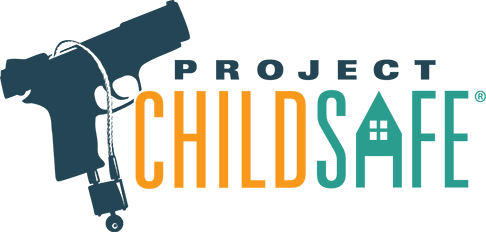Search
Cart
There are no items in your cart.
Login
I am Buying my First Gun…But Where Do I Start?

Author: Andrew Swift, Professional Firearms Instructor at Swift Precision.
As a professional firearms instructor, I can tell you that a lot of people take the wrong factors into account when purchasing their first gun. The unprecedented surge of first-time gun purchases that took place during the pandemic has shown me that firsthand. I once witnessed an elderly lady go into a gun store and tell the clerk that she was there to buy her first gun. She mentioned that she NEVER thought she would ever own a gun but that in these trying times… This woman wanted a home defense handgun, and the gun-store clerk did what a salesman does: he turned around and grabbed a $2500 AR15 off the wall. Now, we LOVE the AR15 platform, but this was not the right gun for this individual for several reasons. Similarly, we teach a Basics of Pistol course every week, and I regularly meet people who are unhappy with their new gun.
A large amount of consumers approach purchasing a new gun the same way that they shop on Amazon: they research the product by Googling “top 5…”, they read reviews, and then they go with what looks cool or otherwise appeals to them somehow. However, unlike the sweater that didn’t fit, at most places, you can’t return the gun. Luckily for the elderly lady holding the decked-out AR, I intervened. We identified a great home defense pistol that better suited her needs and was an excellent gun for beginners. Many first-time owners are trying to navigate this decision completely on their own, so with that in mind, let’s discuss what I feel are the three most important factors to consider when purchasing a gun for the first time.
What is the intended use of the gun?
This is the most important factor to buying a new gun, and yet the most overlooked. It is also the usually the factor that we are the LEAST honest with ourselves about. A lot of that has to do with the way in which we feel we will be perceived, the way that the gun industry markets to us, and even the way that society has trained us to feel about guns in general. This question requires the utmost honesty with yourself to answer because it determines how to narrow the field and find the gun you really need. Is the reason that you are buying a gun for home defense, or do you need a concealed carry gun? Is recreational shooting really the reason that you want a specific gun, or is that what you are telling yourself because of stigmas related to becoming a gun owner? Will that competition race gun really be used as intended or is it an overreach?
When looking at the “why” of buying a gun, if you are not honest with yourself, you will not end up with the best gun to suit your true needs. If you need a gun for home defense, buy a full-size gun that will mitigate recoil and that doesn’t need to be concealed. If you need a concealed carry gun, buy a carry gun that is sized to conceal but that you can also shoot well. Buying a firearm is a very personal decision and the approach should be customized depending on the intended use. It would be great if there was a ‘one size fits all” solution to firearms, but that is not very realistic in today’s environment.
What is the price and what is your budget?
I hate to tell you this, but nothing about firearms is cheap. Guns aren’t cheap, ammo isn’t cheap, and training isn’t cheap. One of the first things new gun-owners realize is that it can require significant investment, both in the equipment and in yourself. When you factor in the widely adopted “no returns” policy, you can easily see why planning your budget is essential. It is easy to rapidly spend thousands on firearms, especially if you’re relying on trial and error to find the right equipment. Having your budget in mind before you buy a gun will help you narrow the field of choices even further and keep you focused on how the gun meets your other criteria. Don’t forget about the ongoing cost of upkeep, gun safes, cleaning materials, any aftermarket accessories like lights and optics, and training (whether basic safety and certification classes or more advanced marksmanship, depending on your goals). A high-end firearm won’t serve you if you can’t afford to train with it or store it safely in your home. Working within your budget will create fewer headaches downstream.
How does the gun feel in your hand?
This is the easiest factor to get right and might seem obvious, but many people buy their first gun without ever test-driving different models. Do the ergonomics of the gun suite you and your hand size? Is it comfortable to hold and does it feel right? Does the weight seem balanced to your arm strength? I know without a doubt that if you do not like the way that the gun feels, you won’t enjoy shooting it your motivation to invest the time needed to become proficient using it will decrease or disappear. Chances are, you will stop shooting the gun completely or will end up buying a different gun, essentially losing most of your initial investment. The fit and feel of a gun is subjective and unique for every individual, as well as the single largest reason that I see people unhappy with their new gun purchases.
Before taking the non-refundable plunge, it is well worth the smaller investment to rent and shoot the models you’re interested in (maybe those “top 5” you Googled). Swift Precision takes this approach so seriously that we purchased the “top 5” guns (closer to 7-8 guns per category) in both the Home Defense and Concealed Carry categories. We wanted to ensure that our students knew exactly what they were getting before making a larger financial commitment. Many commercial ranges will also have a selection of firearms to rent, so call around and find out what options are available near you – you can even phone a friend who already owns a firearm and hit the range together! The experience of using the equipment before you purchase it will help answer any questions that you may have about the fit and feel of the gun. Remember, if it doesn’t feel good in your hand you will have a challenge that you may never get past.
Buying a gun for the first time can be a daunting and often intimidating task, especially for individuals who are unfamiliar with gun culture and the very specific and regulated processes for purchasing a firearm. The best advice I can offer to put you on the path to purchasing the RIGHT gun for YOU is to identify the intended use of the gun and explore firearms designed to meet that specific need. Determine your budget (for the initial purchase and ongoing expenses) and look at available options within that price range. Remember that gun salesmen may be knowledgeable about their wares, but their main objective is still to make a sale. We recommend using an FFL, like Kind Sniper, that takes a comprehensive approach to finding the right firearm for the individual, rather than trying to make the largest sale. Find the right fit and feel by test firing some different makes and models. Most responsible gun-owners love to talk about their collection of firearms, so don’t hesitate to ask knowledgeable shooters or contact professionals. You are already on the right path by reading articles like this and with some patience and investment in yourself, you may eventually be the person at the gun store preventing a first-time buyer from taking home the $2500 AR that they just don’t need.
NEWSLETTER










Leave a Comment